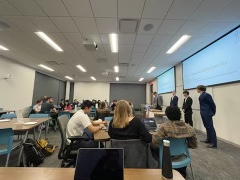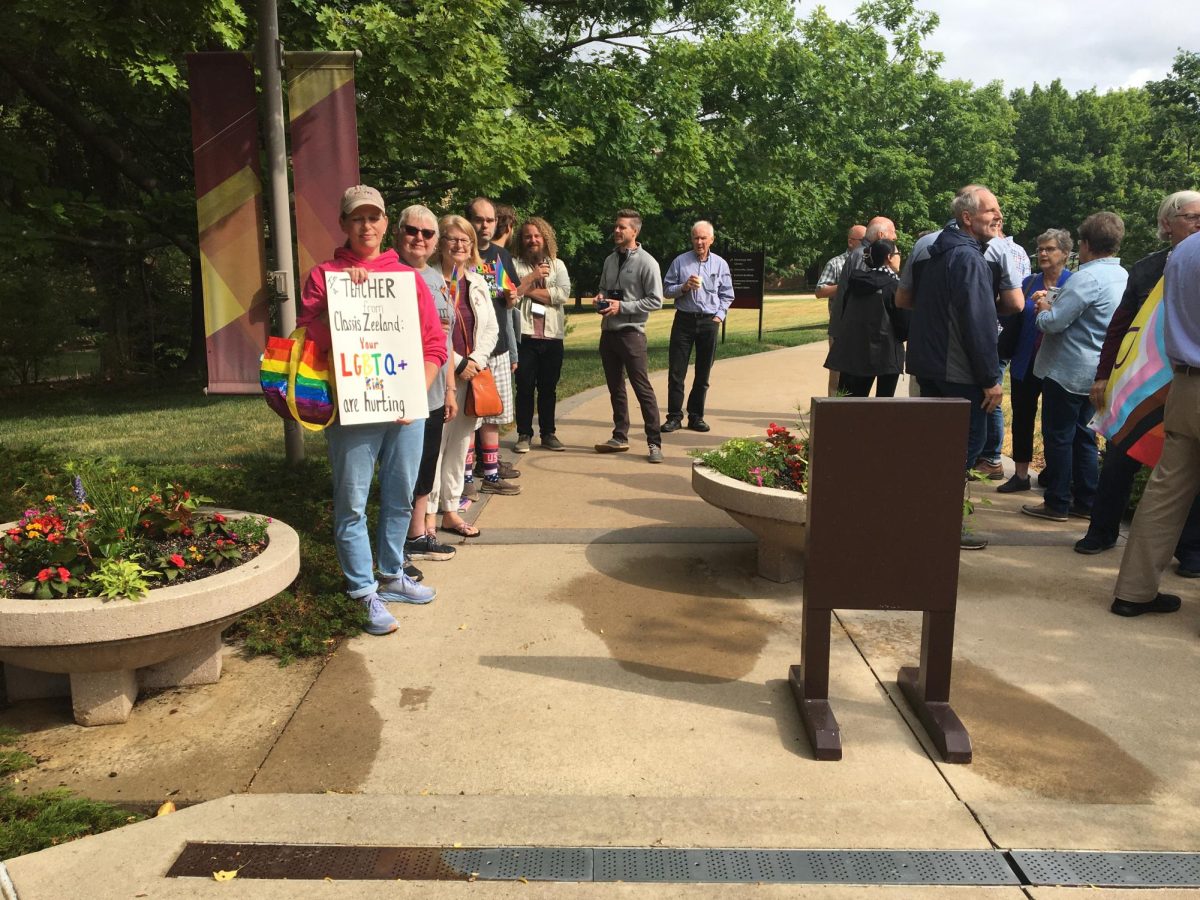
Since being entrusted with the management of 1 million dollars of Calvin’s endowment, Knight Investment Management (KIM) has grown its portfolio to include more than 2.5 million dollars of assets across eight sectors of the economy.
KIM was founded a little over a decade ago as a “re-start” of a discontinued student organization, according to Leonard Van Drunen, KIM faculty advisor and professor of finance, with the goal of making Calvin’s business and finance programs competitive with top programs like those at Ivy League schools or the University of Michigan.
KIM funds are allocated into five major categories: small caps stocks, large cap stocks, bonds, non-U.S. stocks, and cash. KIM’s 55 student members work in small teams to research where to invest the money allocated to the small cap stocks category.
Around 40% of KIM’s funds are used to purchase approximately 30 small-cap stocks. Teams of student analysts from each sector work to pitch new stock purchases to the whole club; for a new purchase to go forward, a majority of the club must agree the investment is sound. Investments are typically sold after a period of two years, unless they reach a target sell price sooner.
In the past decade, KIM has had increasing positive impacts at Calvin, both for enrollment and student experience. KIM’s stock profits go towards funding a variety of student scholarships. According to Tristan Viegas, a senior double majoring in finance and philosophy, the ability to practice investment management in real life was one of the “major selling points” of Calvin University when deciding which school to transfer to.
KIM’s portfolio and focus areas have evolved in the decade since its founding. Viegas, KIM’s Chief Investment Officer, has worked to incorporate an element of “biblical investing” alongside the existing environmental, social and governance (ESG) evaluation.
For Viegas, biblical investing means going “one step further” than a traditional ESG assessment to evaluate “how each firm loves and treats all of the stakeholders surrounding it, whether that be the customers, of course, the suppliers, [or] their competitors.”
Another recent change is the addition of a fixed income sector, which works with corporate bonds rather than traditional stocks. George Holmes, a sophomore studying politics, philosophy, and economics, started at KIM during his freshman year. This year, Holmes is now sector head in charge of the fixed income sector and leads the team that researches and pitches corporate bonds for purchase by KIM. This semester, Holmes and his team have pitched bonds from Centene Corporation, a healthcare provider, and Southwest Airlines.
As someone who isn’t specifically studying finance, Holmes appreciates that pitching stocks for KIM is an opportunity to develop his public speaking skills. “I’m looking at pre-law. So that’s a skill I’m really interested in getting better at,” Holmes told Chimes.
According to Sherise Immanuela, a senior and KIM chief operating officer, KIM is a great place to develop critical skills in research. Regardless of your major, “You really get as much out of KIM as you put in,” said Immanuela.
Immanuella is grateful for her time as a member of KIM. “I want to see the learning and growth aspect of KIM keep growing… Finance can get a bit of a reputation as snobbish or exclusive, but KIM is a really supportive and welcoming group,” said Immanuela.
Compared to investment clubs at other universities, KIM is uniquely accessible to a broad array of undergraduate students. “You don’t have to know anything about investing to come in. You come in as an analyst.” Van Drunen told Chimes. Viegas echoed this sentiment, noting that KIM needs expertise from a variety of backgrounds and that being a KIM member can teach people with limited experience about smart money management.
Anyone interested in more information about KIM can reach out by email to Tristan Viegas at tcv8@calvin.edu.





